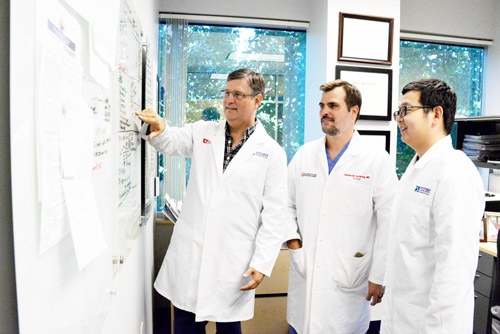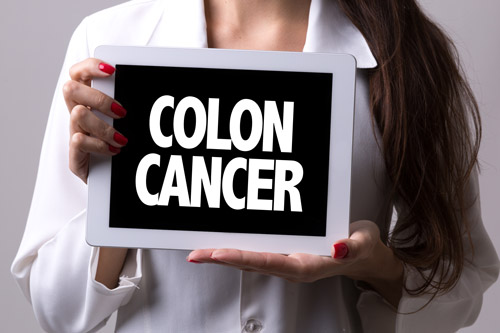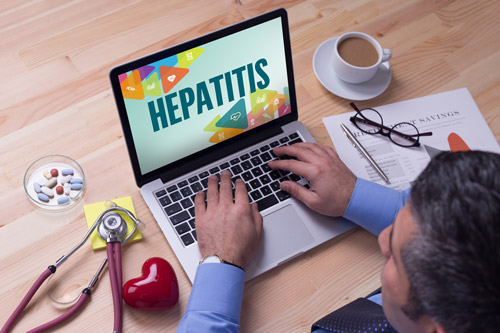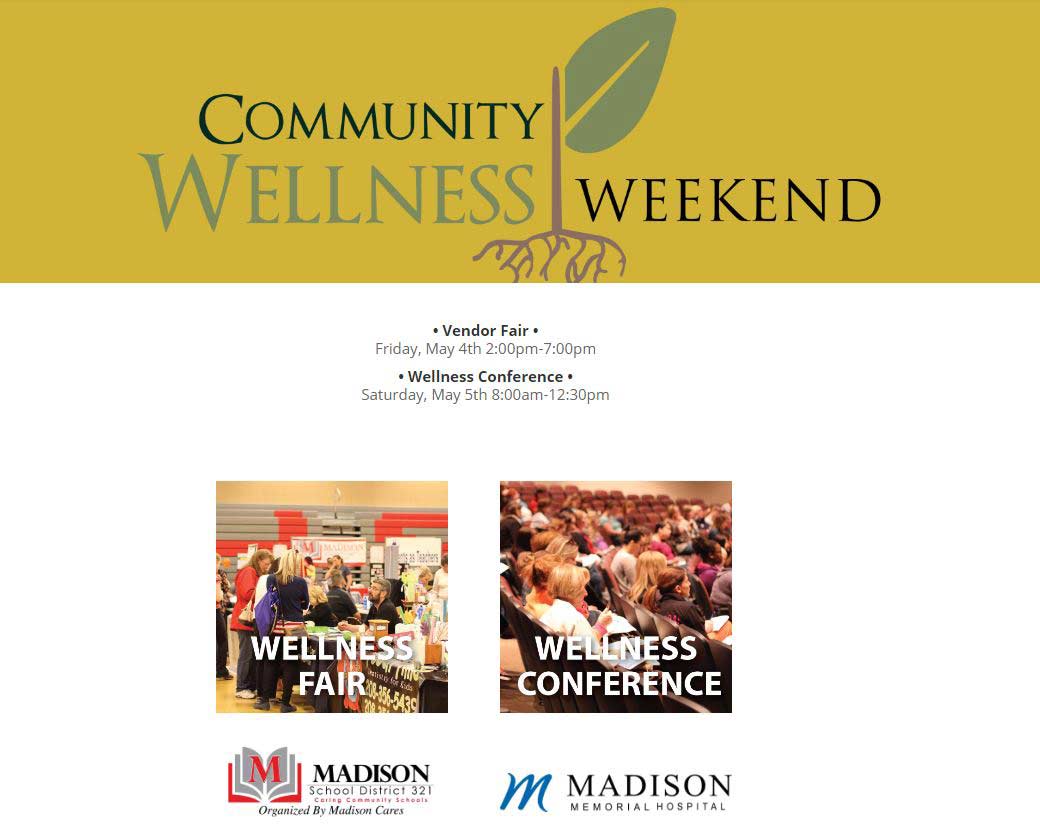A Healthy You
Madisonhealth Blog
New research from scientists at Huntsman Cancer Institute (HCI) at the University of Utah and collaborators at University of Utah Health (U of U Health) sheds light on the complex process that occurs in the development of human sperm stem cells. This is the first study to characterize the changes human sperm stem cells undergo as they mature. The results have implications for understanding male infertility as well as cancer development and were published today in the journal Cell Stem Cell. Previous studies of sperm stem cells have been limited to model systems, including mice. But this first study of developing human sperm stem cells revealed this process was much more complex in humans than had been previously understood. Using genome analysis tools, scientists outlined the multistage process that sperm stem cells undergo during their normal development. “This information yields new insights into how sperm stem cells function and develop...
A new study highlights a new research method using the recently developed CRISPR technique. In short, CRISPR is a technology that allows researchers to cut out a section of DNA that causes a disease, like cancer, and then replace the section with normal, healthy genes. Jay Gertz, PhD, a researcher at Huntsman Cancer Institute (HCI) at the University of Utah, and his team have developed a new technique involving CRISPR. But instead of cutting out certain sections of DNA, this new technique blocks other things from binding to the DNA, including proteins such as estrogen receptor, which is a key driver in the development of breast and uterine cancers. “With this technique, we are targeting regions of the genome, called enhancers, which are really important in turning genes on and turning genes off and play a key role in cancer development,” said Gertz. “These areas are challenging to study, and...
People with an inherited syndrome called familial adenomatous polyposis (FAP) have a 100% lifetime risk of developing colorectal cancer if they do not seek appropriate medical care. Recent findings published by researchers at Huntsman Cancer Institute at the University of Utah identified a promising prevention treatment for patients with FAP. A new study takes these findings a step further by reporting that the treatment led to a near-complete blockade of cancer growth pathways in polyps isolated from FAP patients. Further, these patients showed evidence of activated immune responses aimed at destroying pre-cancerous polyps. The findings were published today in the journal Cancer Prevention Research. FAP is an inherited disorder that occurs in about 1 in 10,000 people. Patients with FAP develop hundreds to thousands of precancerous growths called polyps in their large and small intestine. Many of these people choose to have surgery to remove their colon, but they may...
Liver cancer can be hard to find early. Signs of liver cancer may not show up until the disease has progressed and is harder to treat. It’s important to know if you are at risk for liver cancer and be aware of signs of the disease. Early detection is the key to having the best possible outcome with any ailment, including liver cancer, says Robin Kim, MD, a Huntsman Cancer Institute (HCI) researcher and a liver transplant surgeon at University of Utah Health. Liver Cancer Risk Factors Anything that increases your chance of getting a disease is called a risk factor. Certain risk factors make some people more likely to develop liver cancer. Having a risk factor does not mean that you will get cancer, and not having risk factors doesn’t mean that you will not get cancer. Be sure to tell your doctor if you have any of these...
The results of a national cancer survey find a significant number of childhood cancer survivors are worried about keeping their health insurance, to the point of letting it affect their career decisions. The findings were published today in JAMA Oncology. Anne Kirchhoff, PhD, an investigator at Huntsman Cancer Institute (HCI) and assistant professor of pediatrics at the University of Utah, led the study. Her goal was to examine the prevalence of job lock in full-time, employed childhood cancer survivors. Job lock is when an employee stays at a job in order to keep work-related health insurance. The study found 23 percent of childhood cancer survivors reported job lock, compared to just under 17 percent of the survivors’ siblings who never had cancer. “Even with protections and expansions of insurance coverage in the U.S., this study proves there is still quite a bit of worry about insurance,” says Kirchhoff, “and it’s...
About 10 to 20 percent of people may have mild Seasonal Affective Disorder (SAD). SAD is four times more common in women than in men. Although some children and teenagers get SAD, it usually doesn’t start in people younger than age 20. Your chance of getting SAD goes down as you get older. Tanning beds shouldn’t be used to treat SAD. The light sources in tanning beds are high in ultraviolet (UV) rays, which harm your eyes and your skin. “Winter blues is a general term, not a medical diagnosis. It’s fairly common, and it’s more mild than serious. It usually clears up on its own in a fairly short amount of time,” says Dr. Matthew Rudorfer, a mental health expert at NIH. The so-called winter blues are often linked to something specific, such as stressful holidays or reminders of absent loved ones. “Seasonal affective disorder, though, is different. It’s a...
The radiation emitted by cell phones is regulated by the Federal Communications Commission (FCC). Many Americans use cell phones and wonder if there are any health risks. The only consistently recognized biological effect of radiofrequency energy is heating. The ability of microwave ovens to heat food is one example of this effect of radiofrequency energy. Radiofrequency exposure from cell phone use does cause heating to the area of the body where a cell phone or other device is held (ear, head, etc.). However, it is not sufficient to measurably increase body temperature, and there are no other clearly established effects on the body from radiofrequency energy. People who say cell phones are safe reference statements by the FCC and Food and Drug Administration (FDA) and point to peer-reviewed studies which conclude that cell phone use is not associated with an increased risk of brain tumors or the onset of other health problems....
The start of college means it’s time for young women to take charge of their health. Dr. Aparna Sridhar, an assistant professor of obstetrics and gynecology at the University of California, Los Angeles, offers several tips in a university news release. Know your health status. Talk to your parents and your doctor to make sure you’re up-to-date with health screenings, shots, and prescriptions. Ask about the status of allergies and other health issues. Know how to get health care on campus. Find out the location of the closest health center that accepts your insurance. Keep track of menstrual cycles. Being aware of your cycle will allow you to provide specifics to doctors if there’s an issue. “When I ask my patients when their last period was, the first thing they do is open their cellphone. Many women are tracking their cycles through apps now,” Sridhar said. You might also want to track your...
Are you ready for our communities biggest health and wellness event of the year?! Join us for our Annual Community Wellness Weekend! DAY 1 – WELLNESS FAIR Friday, May 4th from 2pm-7pm With more than 70 vendors in attendance, our goal is for you to reach your health and wellness goals with local resources at your fingertips. http://www.idahowellness.org/community-wellness-fair/ Highlights of Vendor Fair- – FREE to PUBLIC, No entrance fee! – Refreshments for all – $1000’s in door prizes, and screenings – Prescription Drop Box – Health and Wellness Information for ALL AGES DAY 2- WELLNESS CONFERENCE Saturday, May 5th, 8:00-12:30 A complimentary breakfast and lunch will be served, please reserve your spot: This event CME Credited event is for EVERYONE of ALL AGES. Like the vendor fair, it is FREE! Bring your neighbors, family, extended family, and church to this informational, motivational health event. http://www.idahowellness.org/community-wellness-conference/ *This community event is hosted and sponsored by Madison...
Need a doctor? Use these links to select a local healthcare provider for you and your family, or to schedule an appointment, if you already have one. Seasons Medical (208-356-0234) is Rexburg’s largest doctor’s office, boasting teams of medical professionals in four clinics: Adult and Family Care (Brian Beesley, MD, Scott Hardy, DO, and Steven Lofgran, MD) Family Medicine (Michael Packer, MD, and Travis Weiszhaar, PA-C) Pediatrics (Gene Gates, MD, Jason Hymas, MD, Mark Hammar, PA-C, Gary Sena, PA-C, and Angie Peterson, FNP-C) Women’s Center (Robert Meredith, DO, Cameron Codd, DO, Marie Horne, CNM, Linda Webster, WHNP-BC, and Rebecca Helie, CNM) Rexburg Medical Clinic (208-356-5401), with its long and cherished history here in the Upper Valley, offers walk-in care as well as state-of-the-art equipment and treatments. Providers at Rexburg Medical Clinic include Jeffrey Zollinger, MD, Joseph Watson, MD, Zach Brunson, PA, Adriann Wilcox, NP, and Corey Rammell, MD. Madison Memorial Hospital...
One in four young adults, between the ages of 18 and 24, have a diagnosable mental illness. Mental illness and health issues in college students have increased dramatically since 2000. More than 11 percent of college students have been diagnosed or treated for anxiety in 2016 and more than 10 percent reported being diagnosed or treated for depression. 64 percent of young adults who are no longer in college are not attending college because of a mental health related reason, according to the CSC. Depression, anxiety, and bipolar disorder are the primary diagnoses of these young adults. A.P.A Symptoms of Diagnoses Depression Symptoms: Mood: Sadness, feelings of being overwhelmed, feelings of hopelessness, and feelings of powerlessness Behavioral: Changes in sleep habits, sleeping more or difficulty sleeping. Appetite changes, including either a loss of appetite or overeating Cognitive: Seeing a glass ‘half-empty,’ having trouble concentrating and paying attention, resulting in difficulty in reading and...
1 in 3 adults does not get enough sleep, according to the CDC. Are you 1 in 3? In August 2017, Dr. Steve Kay, a professor of neurology at USC, discussed the effects of technology on sleeping patterns. Dr. Kay said, “Looking at tablets or smartphones can actually cause significant sleep disruption. When your eye is exposed to blue light, your brain suppresses the production of melatonin – the hormone production our brain produces at night normally rises in the evening, peaks at midnight and then goes back down.” The presence of any artificial light at night can potentially damage your sleep cycle, but the blue light has been proven to be the most disruptive. Putting your phone on night mode will diminish the blue light to a softer pink light. This may help you to fall asleep easier. Not enough sleep, or even too much, may cause: obesity mood disorders heart...
Showing 85-96 of 184 results











